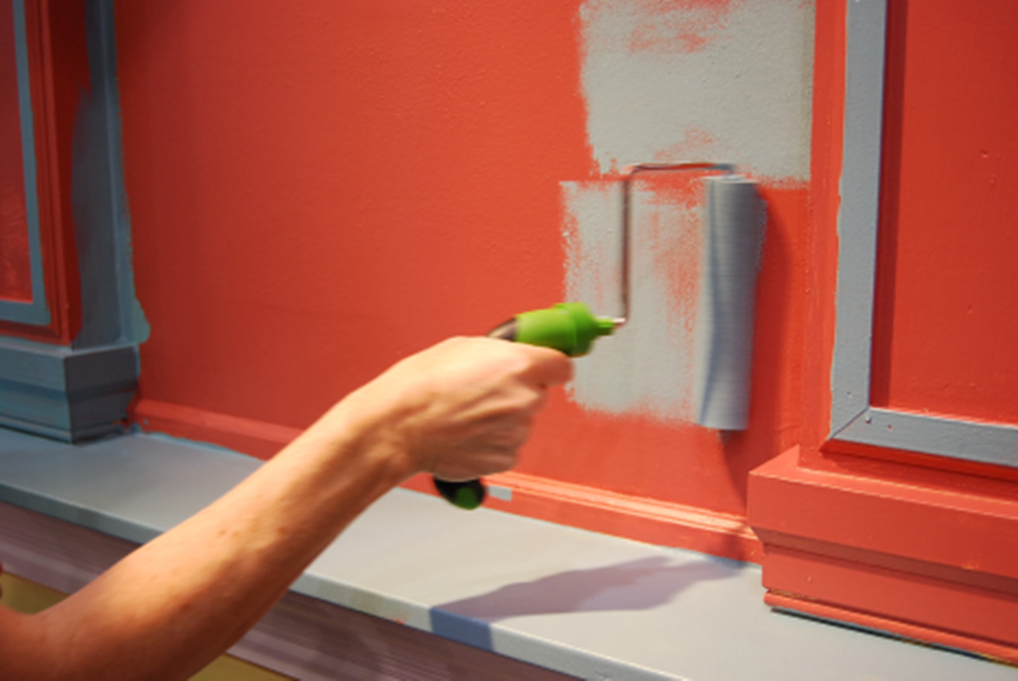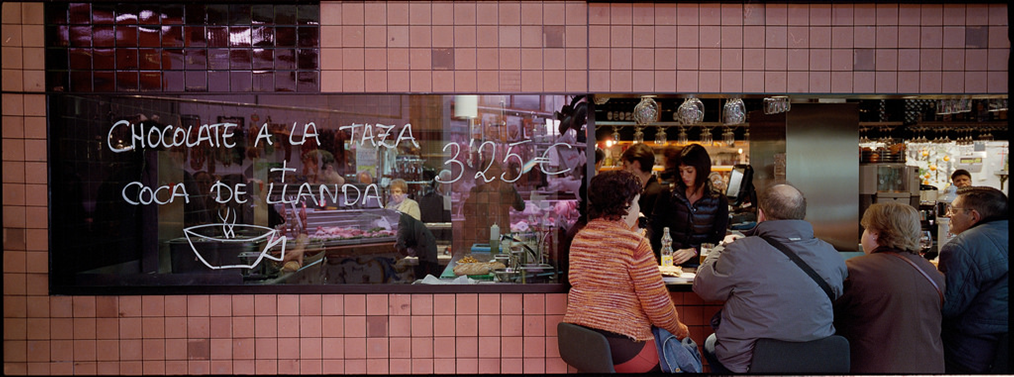10.2: The Present Perfect
- Page ID
- 44605
To talk about things you have done, use the present perfect.
The present perfect requires two pieces:
Haber + past participle
Parte 1: Haber
I have: (Yo) he
You have (informal): (Tú) has
You have/ he has/ she has: (Ud./ él/ ella) ha
We have: (Nosotr@s) hemos
Ya’ll have (Vosotr@s) habéis
You guys have/ they (Uds./ell@s) han
Parte 2: Past Participle
-AR verbs
Drop the ending, add –ado
Hablar = ________
Bailar = ________
Cocinar = ________
Terminar = ________
-ER & -IR verbs
Drop the ending, add –ido
Comer = ________
Vivir = ________
Ir = ________
Salir = ________
Construir = ________
¿Has viajado a México?

Sí, y también he ido a España, Costa Rica, Colombia y Panamá.
Past participles do not change gender when used with haber (verbs don’t have gender)
However, you can use many of these as adjectives as well (typically with estar), in which case they do have to match in gender/number.
Past Participle:
He pintado las paredes de mi casa recientemente.
Hemos terminado la tarea.

Adjetivo:
Las paredes están pintadas.
La tarea está terminada.

Los irregulares
As always, there are a handful of irregular past participles we have to watch out for. Here are some of the most common ones:
Decir = dicho
Hacer = hecho
Escribir = escrito (describir = descrito)
Morir= muerto
Romper = roto
Poner = puesto (proponer = propuesto)
Ver = visto
Volver = vuelto
Abrir = abierto
Des(cubrir) = des(cubierto)
*Verbs that end in –aer, -eer, or –eir take an accent on the ‘i’ in –ido
Common ones are:
caerse (haberse caído = to have fallen), leer (haber leído = to have read), reír (haber reído = to have laughed) creer = creído, oír = oído, sonreír = sonreído, traer = traído
Actividad 1
Los quehaceres domésticos. Who has done the chores in your house this week? Use the correct form of haber, depending on who has done each action. To say that nobody has done an action, make the sentence negative. Grammatically, treat nadie as one person.
Por ejemplo: Nadie ha sacado la bausura. / No ha sacado la basura nadie.
1. ¿Quién ha pasado la aspiradora*? *the vacuum
2. ¿Quién ha limpiado la cocina?
3. ¿Quién ha cortado el césped*? *the lawn
4. ¿Quién ha comprado comida?
5. ¿Quién ha lavado la ropa?

Mi abuela ha lavado la ropa.
Yo la he colgado*.
*colgar = to hang
Actividad 2
¡A practicar! Give the Spanish equivalent for the questions below, then answer them. Be prepared to interview a classmate and to share with the class.
1. Have you eaten cereal this morning?
________
Repuesta: ________________________
2. Have your grandparents been married for many years? (To be married: estar casad@s).
________
Repuesta: ________________________
3. Have you have seen lots of movies recently?
________
Repuesta: ________________________
4. Have your classmates written a paper (trabajo) this quarter?
________
Repuesta: ________________________
5. Have you gone to the supermarket this week?
________
Repuesta: ________________________
6. Have you done something fun recently?
________
Repuesta: ________________________
Actividad 3
Los pronombres. If you have pronouns, put them in front of your conjugated verb (with the present perfect, the conjugated verb is your form of haber). Answer the following questions about your life. You may need to change the pronoun in your answer, so think through these carefully. Video
Los verbos reflexivos: (me, te, se, nos, os, se)
1. ¿Te has caído en público? ________
2. ¿Te has duchado recientemente? ________
Los complementos directos: (me, te, lo/la, nos, os, los/las)
1. ¿Has visitado a tus primos recientemente? ________
2. ¿Has comido las sobras*? *The leftovers ________________________
Los complementos indirectos: (me, te, le, nos, os, les)
1. ¿Me has dicho la verdad? ________
2. ¿Le has escrito una carta de amor a alguien? ________
Actividad 4
¿Que has hecho recientemente? With a partner, ask and answer the following questions about what you have done recently. Then, expand on your answer by answering the followup questions: Video
1. ¿Has cantado karaoke con amigos? ¿Cuándo? ¿Dónde? ¿Con quién(es)?
2. ¿Has viajado al extranjero?* *abroad ¿Cuándo? ¿Adónde? ¿Te gustó?
3. ¿Has visto todos los episodios de algún programa de televisión? ¿Qué programa?
4. ¿Has leído un buen libro? ¿Me lo recomiendas? ¿Por qué o por qué no?
5. ¿Has escrito un trabajo para una clase? ¿De qué trata?* *What’s it about?
6. ¿Has hecho algo en público que te avergonzó?* *embarassed ¿Qué hiciste?
7. ¿Has comido en un nuevo restaurante? ¿Me lo recomiendas? ¿Por qué o por qué no?

Actividad 5
Una entrevista.
Paso 1. Using the usted form, write three questions for your instructor asking about what they have done recently. Be prepared to share with the class.
1. ________
2. ________
3. ________
Paso 2. Based on the interview, write three sentences about what your instructor has done recently.
1. ________
2. ________
3. ________
Note: In Spain, the present perfect is more often used for things that happened in the very recent past instead of the preterite. The preterite is then used for actions that occurred outside what would be considered the current time frame.
Por ejemplo:
España: Esta mañana, he ido al dentista. / Fui al dentista en enero.
Latinoamérica: Fui al dentista esta mañana. / Fui al dentista en enero.
Actividad 6
Dos amigos. Two coworkers are at a tapas bar in Madrid catching up after a long day. One of the friends, Arturo, is madrileño (a man from Madrid). The other friend, Luís, is caleño (a man from Cali, Colombia) who lives and works in Madrid but speaks as they do in Latin America. Complete the dialogue as they ask each other about their day, accounting for the regional tendencies for using the present perfect or the preterite.
Arturo: Hola, Luís, ¿Cómo te (1 “it” ir) ________ ________ hoy en el trabajo?
Luís: Me (2 “it” ir, preterite) _________bien, gracias. ¿Y a ti?
Arturo: Bien, bien. Pero, yo (3 recibir) ________ ________ muchas llamadas telefónicas. Casi no (4 poder)________ ________ hacer nada más que atenderlas.
Luís: ¿De verdad? Yo solo (5 recibir, preterite) ________ una llamada durante el día entero.
Arturo: Bueno, hoy (6 “tú” tener) ________ ________ toda la suerte.
Luís: Parece que sí… bueno, ¿por qué no hablemos de otro tema?
Arturo: Buena idea, ¡la Copa Mundial, entonces!
Luís: De acuerdo. ¡Vamos Colombia!



